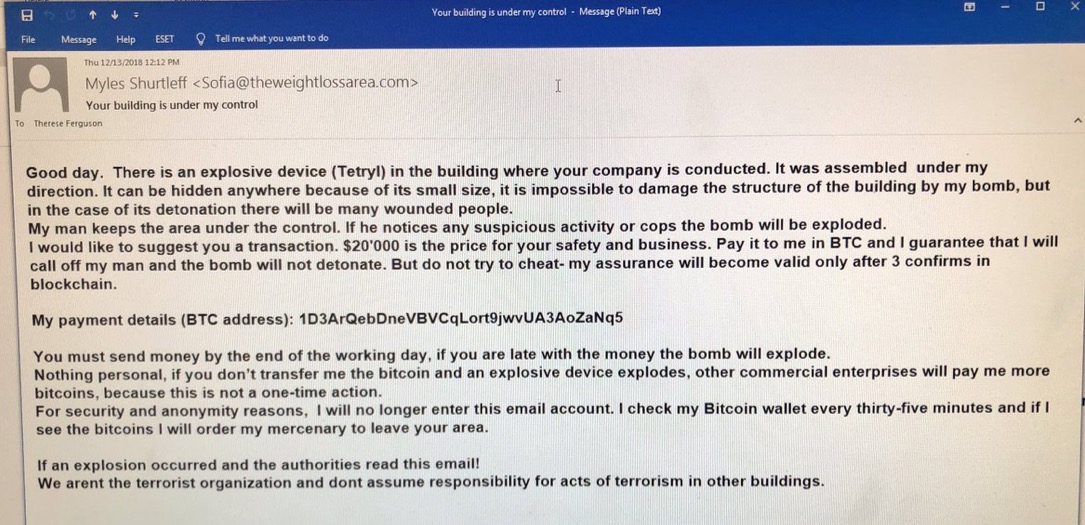

§ 3553(a).Ī defendant is typically subjected to broad discretion that is afforded to a federal sentencing judge who will normally consider the following: Readers should note, however, the actual sentence will always depend on the specific factors listed under the United States Sentencing Guidelines, and others under 18 U.S.C. Charges under sections 871 and 879 have five-year maximum sentences. Interestingly, you face lower maximums for making threats against the president or any former president. If you are charged with mailing threats of any kind listed above, then you will likely face a 20-year maximum under sections 875, 876, 877, and 878. Other charges listed in this chapter have maximums that go as high as 20 years in prison upon conviction. § 872 for $1,000 or less is the only other charge listed in this chapter with a maximum sentence of one year in jail and a fine. § 873 blackmail is a misdemeanor offense carrying up to one year in federal prison.Įxtortion under 18 U.S.C. Code, blackmail has the short possible criminal sentence. Of all the crimes listed in Chapter 41 of Title 18 of the U.S. a fine as ordered by the court, or both.§ 873?īlackmail is a federal misdemeanor charge, which means that the maximum possible penalty upon conviction is: Other lesser crimes can give a jury an alternative choice to allow a defendant to avoid a conviction on more serious charges. A plea to a lesser crime from the above list might be available if you are negotiating a plea deal to a more serious criminal charge. These crimes cover a wide range of criminal acts and also have varying punishments. § 880 – receiving the proceeds of extortion. § 879 – threats against former Presidents and others, § 878 – threats and extortion against foreign officials, § 877 – threatening communications from foreign country, § 876 – mailing threatening communications, § 874 – kickbacks from public works employees, § 872 – extortion by United States employees, § 871 – threats against Presidents and successors, There are several related crimes to the federal crime of blackmail or extortion and are listed under Chapter 41 of Title 18 of the U.S Code, they are: There are only specific forms of extortion and threats that will be prosecuted under federal law, rather than state-level prosecution. This threatened harm could be the victim's reputation or to any information that would negatively impact their business. This federal offense involves threats of harm, either economic or physical, that is accomplished by use of wire transmissions, like email, text messages, or other interstate or foreign communications. If someone knows that someone else committed a crime and offers to stay quiet about it for a sum of money, then that person has committed blackmail under federal law.Ī common blackmail or extortion case pursued by a federal prosecutor is related to interstate communications, defined under the related statute 18 U.S.C.

The important distinction for a federal blackmail charge is that the secret at issue relates to the violation of the law, which is a misdemeanor offense.

§ 873 lays out legal penalties for a someone who demands or receives money, or anything of value, made under threats of informing, or for not informing, which violates federal laws. Put simply, blackmail and extortion is the illegal conduct of demanding money from someone to not report something, such as potentially embarrassing information about the person, or even criminal behavior.ġ8 U.S.C. The federal crime of blackmail normally involves threats to do some act that will harm the victim.


 0 kommentar(er)
0 kommentar(er)
